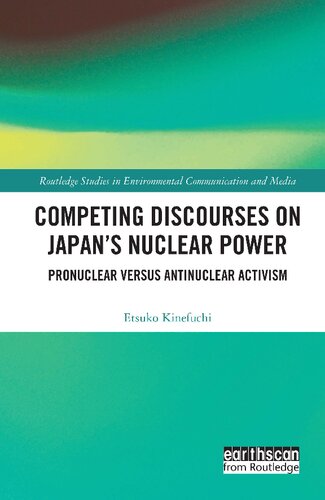

Most ebook files are in PDF format, so you can easily read them using various software such as Foxit Reader or directly on the Google Chrome browser.
Some ebook files are released by publishers in other formats such as .awz, .mobi, .epub, .fb2, etc. You may need to install specific software to read these formats on mobile/PC, such as Calibre.
Please read the tutorial at this link. https://ebooknice.com/page/post?id=faq
We offer FREE conversion to the popular formats you request; however, this may take some time. Therefore, right after payment, please email us, and we will try to provide the service as quickly as possible.
For some exceptional file formats or broken links (if any), please refrain from opening any disputes. Instead, email us first, and we will try to assist within a maximum of 6 hours.
EbookNice Team

Status:
Available0.0
0 reviewsThis book examines the discursive formation of nuclear power in Japan to provide insights into the ways this technology has been both promoted and resisted, constituting and being constituted by Japan’s sociocultural landscape.
Each chapter pays close attention to a particular discursive site, including newspaper editorials, public relations campaigns, local site fights, urban antinuclear activism, and post-Fukushima pronuclear and antinuclear articulations. The book also raises the question of democracy and sustainability through the examination of nuclear power discourses. It demonstrates the power of discourse in shaping nuclear power by creating knowledge, influencing decisions, relationships, identity and community. Readers will gain a range of insights from the book: prominent articulations on nuclear power discourse; state and corporate strategies for enticing consent for controversial facilities and technologies; the power of the media in framing public knowledge; the role of social movements and activisms in civic society; the power of community; and nuclear power as a problematic in representative democracy and sustainability.
This book will appeal to students and scholars interested in social discourse, social movements, Japanese society, cultural studies, environmental communication, media analysis, energy and sustainability, and democracy, among others.